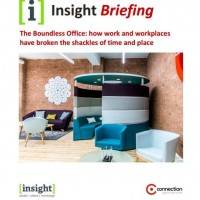March 15, 2016
Décor matters but location most important factor for the ideal office 0
 Recent data has shown that increasingly, it’s people, not cost, which is the primary driver behind real estate decisions. British Land has carried out research into what features would make up the UK workers’ ideal office and the results point to a clear link between delivering these ideal features and talent recruitment and retention. The good news is that the workers surveyed believe they would be 36 percent more productive at work if they were working in the ideal office, and, 86 percent say they’d stay longer with an employer that had the ideal office location and features. The other side of the coin is that 80 percent believe that companies that don’t offer their employees a convenient location and attractive features are more likely to lose them. Younger workers in particular are markedly more likely to move jobs to find a working environment that suits them, and this includes offering a workplace with a ‘buzz’.
Recent data has shown that increasingly, it’s people, not cost, which is the primary driver behind real estate decisions. British Land has carried out research into what features would make up the UK workers’ ideal office and the results point to a clear link between delivering these ideal features and talent recruitment and retention. The good news is that the workers surveyed believe they would be 36 percent more productive at work if they were working in the ideal office, and, 86 percent say they’d stay longer with an employer that had the ideal office location and features. The other side of the coin is that 80 percent believe that companies that don’t offer their employees a convenient location and attractive features are more likely to lose them. Younger workers in particular are markedly more likely to move jobs to find a working environment that suits them, and this includes offering a workplace with a ‘buzz’.


































March 11, 2016
What that story about menstrual leave teaches us about flexible working 0
by Mark Eltringham • Comment, Flexible working, Technology, Workplace
(more…)